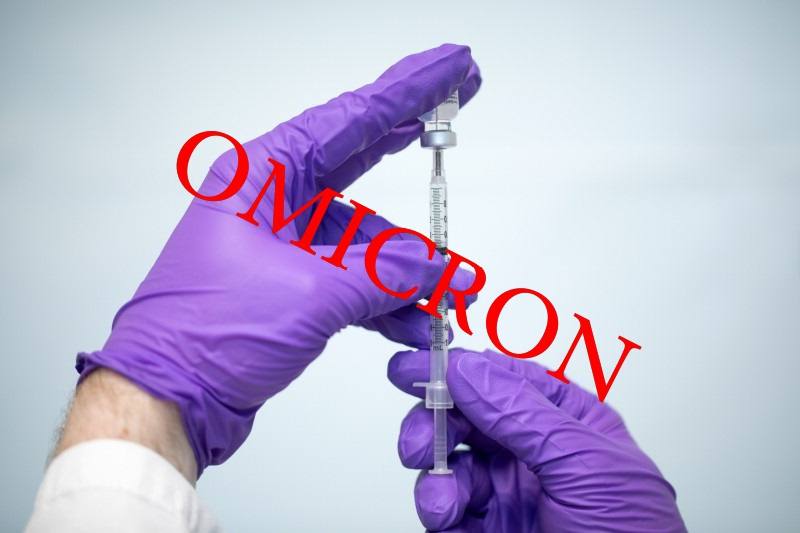-
COVID-19
Mayo Clinic expert discusses the latest on omicron variant.

The omicron variant has now been identified in at least 32 states, and experts believe it will become the dominant strain in the U.S. The omicron variant appears to be more transmissible than other variants, including delta, but has so far led to milder disease.
The Mayo Clinic News Network Team sat down with Dr. Abinash Virk, an infectious diseases physician to answer some of the team's questions about the omicron variant:
Watch: Dr. Abinash Virk discusses the latest on omicron.
Journalists: Broadcast-quality sound bites with Dr. Virk are in the downloads at the end of the post. Please courtesy: "Abinash Virk, M.D. / Infectious Diseases / Mayo Clinic."
What is the latest on the omicron variant?
What we know about the omicron variant is that it is in the U.S., and it's in about 60 countries around the world. In terms of the virus and the disease it causes, what we know is that it is more infectious than the delta variant. We know that more people, whether they had previous infection or not, are having recurrent infections.
It generally is milder than the previous variants so far, but we're still learning about the rates of hospitalization and deaths from omicron. Most of this data are coming from South Africa. In some areas in South Africa, hospitalization rates have increased.
What we also know about the omicron variant is that the vaccines have a lower protection against omicron, compared to delta or other variants. The people who had COVID-19 infection before and receive two doses of a messenger RNA vaccine (Moderna and Pfizer are messenger RNA COVID-19 vaccines) seem to be more protected than the people who only just had two doses off the messenger RNA vaccination. What that tells us is that combining either infection with two doses of messenger RNA vaccine or getting a booster after your two doses of the messenger RNA vaccine, or the Johnson & Johnson vaccine is really important in terms of protection that we can garner against COVID-19 caused by omicron.
Since omicron may produce milder symptoms, how can people tell if they are infected with the omicron variant or they simply have a common cold?
What we are finding with the omicron variant is that people are having symptoms that are similar to a common cold, which is what the vaccination does by changing a severe disease to a milder infection. For people who are vaccinated, they may only have cold symptoms, and they may just blow it off as just some other respiratory virus. But it's really important to get tested because there is no specific symptom that differentiates COVID-19 from another coronavirus or another respiratory virus that's out there. So have a low threshold to get tested if you have symptoms, even of just a cold.
With the omicron variant spreading, when should people get tested for COVID-19?
It's really important for people to get tested. Get tested early, get tested frequently, even if you're sure that it was not omicron. You may not know that it is not omicron. It's just better to be tested, better to know, better to be able to protect yourself and others in your community ― or in your work environment. We really recommend early testing.
Also, it's important to be able to differentiate it from influenza, particularly for people who are immunocompromised or people who are older, because we have treatments for influenza that we would want to recommend. We also have treatments for COVID-19 infection, whether it's caused by omicron or delta, in terms of people who are immunocompromised.
What protective measures is Mayo Clinic recommending to prevent against the omicron variant or other COVID-19 variants?
Please get yourself vaccinated if you are not yet. We know that these vaccines work against delta and omicron, especially to protect against severe COVID-19 infection that may result in hospitalization or death.
We know that the vaccines provide very good protection against hospitalization and severe disease. Recent data show that about 70% protection against severe disease caused by omicron.
So it's important to get vaccinated if you're not vaccinated. Second, it is important to get a booster if you have not gotten your booster yet because boosters will definitely improve your antibody and other immune responses against these viruses. In fact, even better than the second dose, so it's really important to get the booster. Those boosters are also particularly important for people who are immunocompromised or elderly. However, for the immunocompromised, I want to tell them that we are recommending an additional dose after your first two doses of the messenger RNA vaccine and then get a booster six months later.
We are still recommending masking, distancing and hand hygiene, particularly when you're indoors or in crowded locations. It's important to wear a mask so that you don't pick up COVID-19 or if you have COVID-19, you don't transmit it to others.
_______________________________
For the safety of its patients, staff and visitors, Mayo Clinic has strict masking policies in place. Anyone shown without a mask was recorded prior to COVID-19 or recorded in an area not designated for patient care, where social distancing and other safety protocols were followed.
Information in this post was accurate at the time of its posting. Due to the fluid nature of the COVID-19 pandemic, scientific understanding, along with guidelines and recommendations, may have changed since the original publication date.
Research disclosures for Dr. Gregory Poland.
For more information and all your COVID-19 coverage, go to the Mayo Clinic News Network and mayoclinic.org.
Learn more about tracking COVID-19 and COVID-19 trends.








